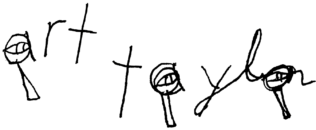
A.S. Byatt
Even in recognizing both the widespread popularity of A.S. Byatt and the persistent critical acclaim for her work, I have to admit I’m of two minds about her novels, much of my ambivalence stemming from experiences with her best-known book, Possession, but also from discussions with friends and fellow writers about her writing in general. On the one hand, I can respect her achievement in that big, sprawling novel — the various voices and textures, the imagination needed to create that world and the determination to put it on the page in extensive, comprehensive detail — but I’ve also always felt the weighty self-indulgence of it as well: the sheer and often unnecessary wordiness of it all, for example, and the need for a firm hand on the editing side. When I read the book in a graduate class at George Mason, students were completely divided in their reactions — love it, hate it, with little in-between — and I have one friend who so intensely dislikes her work that he has read aloud passages from her novels just so he can point out all those indulgences: the overflowery, overobfuscated prose.
Still, Byatt’s literary celebrity can hardly be dimmed, and it’s a coup for North Carolina that Byatt has chosen the Triangle for a pair of stops on the brief U.S. tour for her new novel, The Children’s Book. It’s no surprise that the novel has been welcomed on these shores with mostly great enthusiasm. The Washington Post review wrote that “Bristling with life and invention, [The Children’s Book] is a seductive work by an extraordinarily gifted writer.” The Wall Street Journal noted that “In a dumbed-down world, what a pleasure it is to dive into the dense, allusive, uncompromisingly erudite novels of A.S. Byatt.” But some dissenters persist, like The New York Times, which touches on that “on the other hand” I alluded to above:
While Byatt’s engagement with the period’s overlapping circles of artists and reformers is serious and deep, so much is stuffed into The Children’s Book that it can be hard to see the magic forest for all the historical lumber — let alone the light at the end of the narrative tunnel. The action is sometimes cut off at awkward moments by ponderous newsreel-style voice-over or potted lectures in cultural history. Startling revelations are dropped in almost nonchalantly and not picked up again until dozens or even hundreds of pages later. Byatt’s coda on the Great War, dispatched in scarcely more pages than the Exposition Universelle, is devastating in its restraint. But too often readers may feel as if they’re marooned in the back galleries of a museum with a frighteningly energetic docent.
For those N.C. readers who think of Byatt not as “frighteningly energetic” but as “seductive” and “gifted” and “uncompromising erudite” (in a good way, that is), then check out her upcoming visits: Thursday, October 15, at 7:30 p.m. at Perkins Library at Duke University and then Friday, October 16, at 8 p.m. at the National Humanities Center (online registration required).

